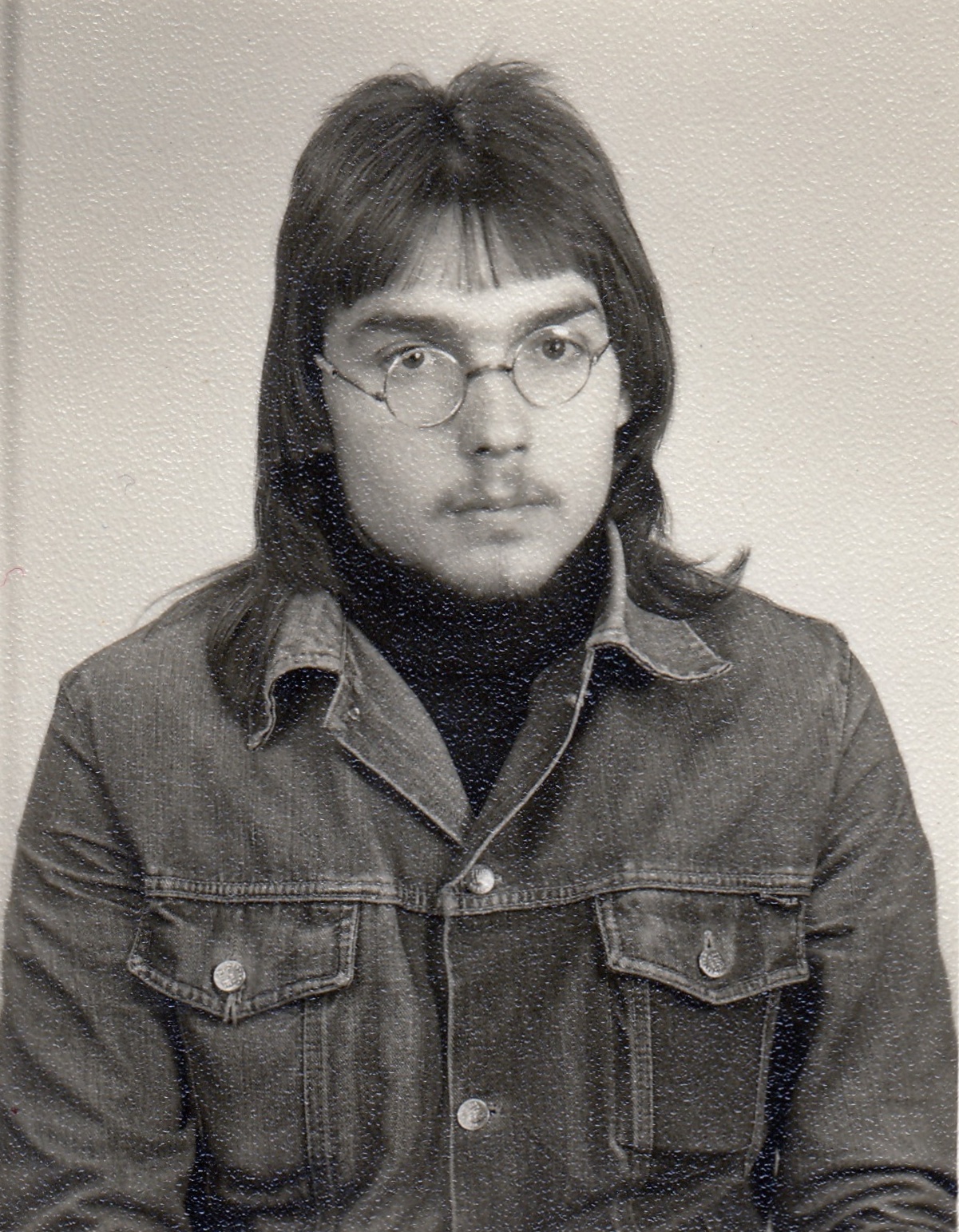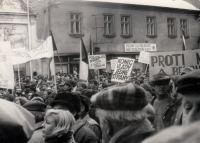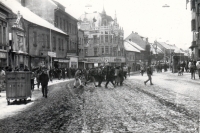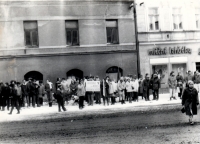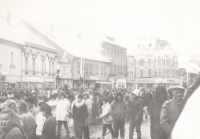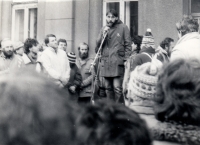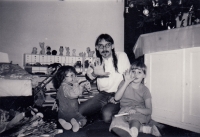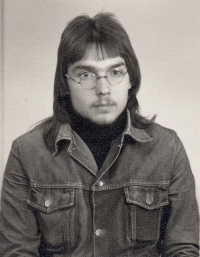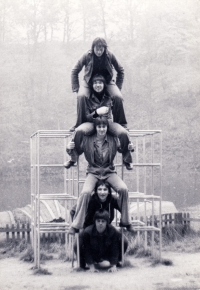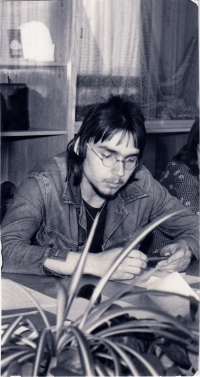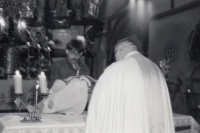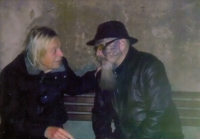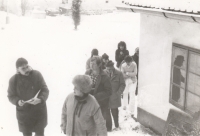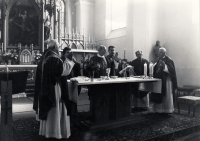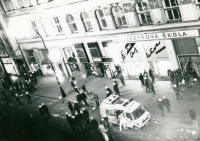“But then, when those from Budejovice took over, the advantage was that I had a ride in 613 (*Tatra 613 a large luxury car). Until then, they rode mostly Zhiguli (a compact sedan car), or Tatra 603. But those from Budejovice who came from the regional administration of the StB, they at least took me into the sixty-sixth. That was nice. They let me change my clothes, so I wouldn't mess up the car. And there it was very hard, they were threatening us that our children will be taken away, that I will be arrested and our children will go to young offenders' institution. By that time there was eighty-nine, eighty-eight, eighty-ninth coming. And there it was going to be tough and then they scared me. Just to mention, my mother was too ill, she wasn't nearly mobile at the time, she was after a hip surgery. So, I was fighting very hard not to leave her here. But I wanted to get a passport, so I could take her to my aunt in Sweden. But when I went for the passport that was about to be done, they immediately told me that it was not in compliance with the laws of the Czech Republic and likewise, and immediately confiscated the passport. So, I filled in a complaint, they replied that it is not in accordance with the law and likewise. So, I couldn't go with my mom to take her to Sweden. And she actually had to stay here. But she didn't want it that much, but it would be a solution. That was the first time I hesitated, and I came to the German Embassy, (...) if they would have taken me if I had applied for emigration. Like the friend Petr Hlavatý, who missed it so badly that he wanted to come back. He was going to the border almost every week and there he looked at Bohemia. He told me that it was so traumatic and it affected their family so much, that when they returned, they got divorced. Just the stress was so terrible for them that they couldn't stand it, they missed it. So, I came to the German embassy, there they said, of course, if I apply. But I said I would hold until the last minute. But the interrogations, and the house arrest and likewise, escalated and escalated in frequency and style. At the time, as it went, I didn't feel I would not make it. But then, when it hit me ... People then told me it was heroism. I don't know if it was heroism or irresponsible behavior towards my children. I do not know if anyone can imagine and think that they would really do what even someone did in the fifties for sure. (...) They took children from some people who signed the Charter. Was it heroism from me, or irresponsibility towards my family, my children? What if the eighty-eight really didn't come so soon? And they would take the children, put them in young offenders' institutions ... I would be arrested four or five years; I would lose my entitlement to children. My wife would be arrested, too, because she too ... I just don't know; I didn't feel like a hero when I evaluated it. That was the biggest pressure on me. Or even they told me, and it was the hardest thing for me: 'Well, your kids walk to school, they could be hit by a car, something could happen to them.' It was that harsh. Well, you start to crumble. Looking for a little support. That's why I went to the German embassy.”
